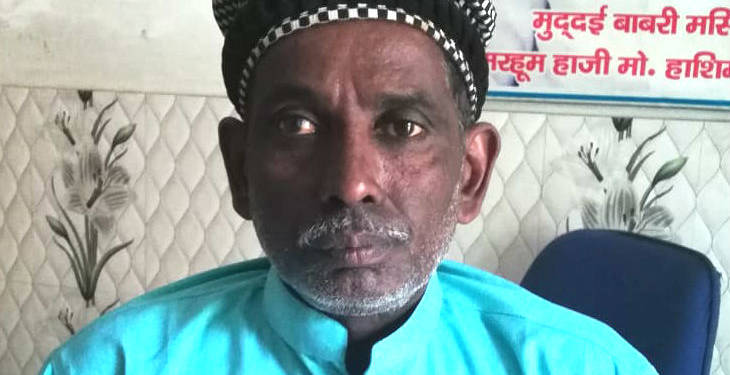A few days ago, the Uttar Pradesh Sunni Waqf Board, one of the foremost litigants of the Ram Janmabhoomi case, completed the nomination of the people for Indo-Islamic cultural foundation trust- which is responsible for building a mosque in Ayodhya. The Supreme Court of India, to do complete justice, awarded 5-acre land to the Sunni Waqf Board to construct a mosque for prayer as the Babri mosque was demolished in 1992 by the Karsevaks.
The Sunni Waqf Board constituted a 15 member trust to take up the task but Iqbal Ansari, the son of the oldest litigant from the Muslim side, Hashim Ansari, has not been given a place in the trust. Hashim Ansari was a Pashmanda (backward caste) Muslim and died in July 2016, almost three years before the final verdict on the case. All India Pashmanda Muslim Mahaj–an organization of backward caste Muslims–has started a protest against the members of the trust as all of them are upper caste Muslims. According to All India Pashmanda Muslim Mahaj, backward caste Muslims constitute 90 per cent of all Muslims population in India, but, they are not given representation in any socio-religious body of the Muslims.
The Muslims of India practice a strict caste system, although it is very little known to the non-Muslim community of the country. The left-liberal intellectuals of the country, as always, are unaware of the problems, and caste system among Muslims is very little discussed in the English speaking mainstream media.
The Muslim community of the country practices caste system and even untouchability, which is traditionally seen as a trait related to Hinduism. Research on untouchability among Muslims in the state of UP, published in Economic and Political Weekly, concluded, “The precarious condition of Dalit Muslims due to the actions of the state is further complicated by the position taken by the conservative elite of their own community. Every attempt of this marginalized group for recognition is countered by conservative Muslims citing certain Quranic verses.”
All India Muslims Personal Law Board, the most powerful Muslim body of the country, has more than 200 members, but, the number of backward caste Muslims among them is negligible. Similarly, other influential bodies of the Muslims are also dominated by Ashrafs (the upper caste Muslims), and the representation of 90 per cent Pashmanda Muslims (backward caste Muslims) is negligible.
There is a long-held perception that the Congress party plays appeasement politics to woo Muslim vote bank. After analyzing seven decades of its appeasement to Muslims and its impact on society, we concluded that it does not appeases the Muslim masses but the upper caste (yes, Muslim society is deeply caste-ridden), upper-class Muslims which is constituted of Ulema, Imam and the section of people who have considerable influence over society. Rajiv Gandhi upturned the SC verdict on Muslim women’s right to alimony in Shah Bano case to appease this upper-caste, upper-class, ultra-orthodox section of society. So, the Congress’ appeasement to Muslims was an appeasement to this 10 per cent section of Muslim society.
Historically, Islam in India has been very different from that Arabic world. The majority of Muslims in the country have Hindu ancestors, and they follow Hindu customs. Many communities among Muslims are known by their caste affiliation like Khoja Muslim, Memon Muslim and others. The number of Muslims whose ancestors were from foreign land does not constitute even a double-digit percentage population of the community, and while the government has taken various steps to address the inequalities in the Hindu society, the Muslim society continues to be dominated by the upper caste people. And therefore, the Muslim leaders did not consider giving representation to backward-Muslims necessary despite the fact their member was the first litigant in the case from the community.
